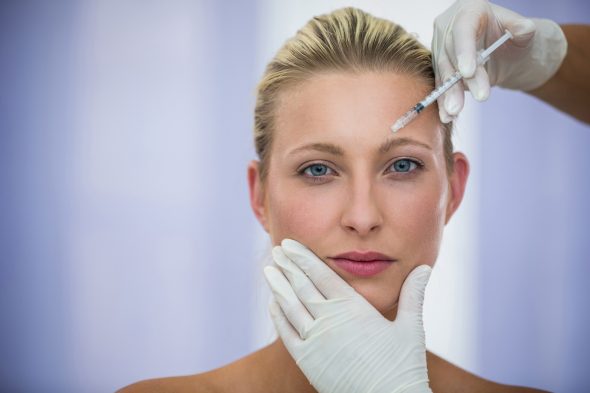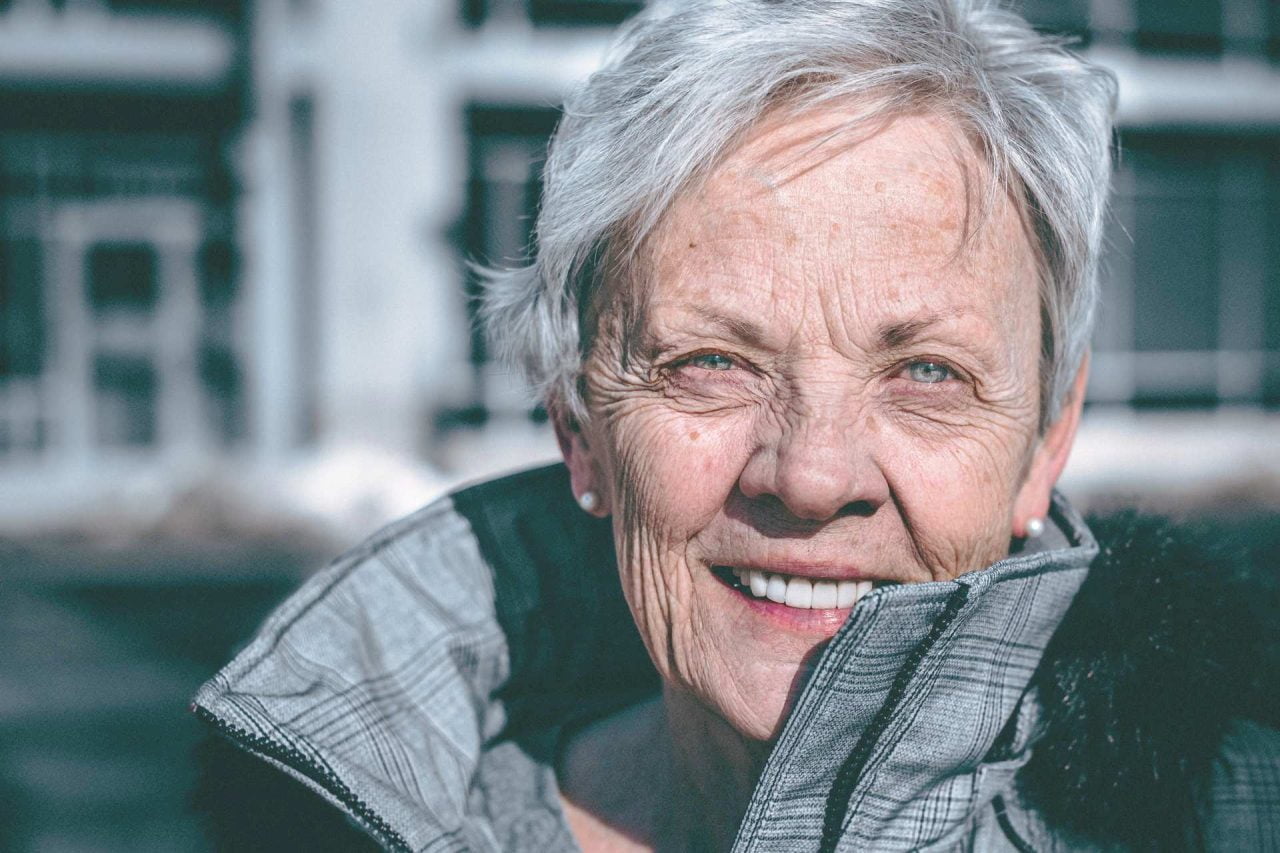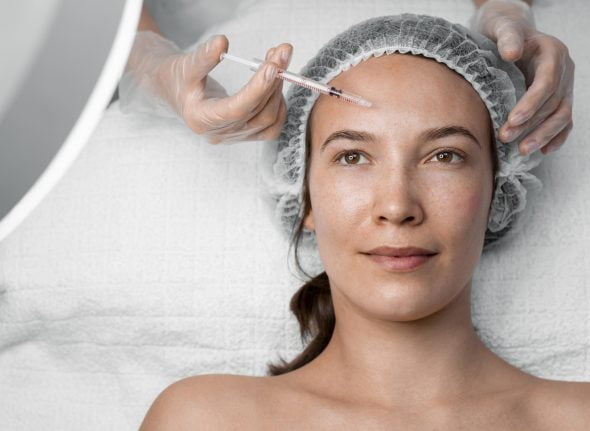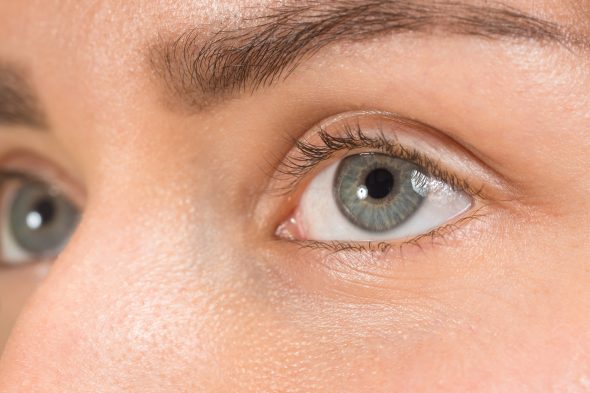

Why Do We Get Bags Under Our Eyes?
Daniel Ezra, 25 January 2022

Bags under the eyes have long been associated with sleepless nights and tiredness. We’ve all had those days when we wake up with dark circles, puffiness, and swelling under the eyes. Eye bags can make us look and feel older and fatigued even if we are awake and alert. The causes of bags under the eyes are multifactorial and are mostly due to the natural ageing process, genetics, lifestyle and environmental factors. They can affect younger people too but do progressively get more noticeable with age. A small minority may be related to an underlying disease process such as thyroid eye disease, infection or allergies.
What Are Bags Under The Eyes?
As we age, the tissue around our eyes that supports our eyelids starts to weaken. When this happens, fat that is usually confined to the area around the eyes can shift into the area below our lower eyelids and make them look puffy and swollen. Fluid can also start to pool in this area and further contribute to oedema (swelling) and puffiness. These swollen, puffy eyelids may also begin to cast shadows under the eyes. This can create those dark circles that we dread seeing in the mirror in the morning. Despite being usually harmless, bags under the eyes are a common concern for both men and women around the world.
What Factors Can We Address?
Aside from ageing, there are several factors that can cause or worsen the appearance of bags under the eyes.
Sun exposure
Ultraviolet light damages the collagen in the skin, leading to laxity of the orbital tissues, pigmentation, textural changes and wrinkles. Loss of the elasticity of the skin can cause eye bags and dark circles to appear. Using a daily SPF protects the skin and prevents signs of ageing.
Smoking
Smoking leads to degradation of collagen and elastin fibres which keep our skin firm and toned, contributing to wrinkles and eye bags. Damage to blood vessels from smoke inhalation can cause these vessels to leak and pool under the eyes, causing dark circles and swelling. Giving up smoking can have massive benefits to your health, lifestyle, and appearance.
Sleep
The concept of ‘beauty sleep’ is not new. Research has shown that skin cells have their own circadian rhythm and while we sleep, the skin goes into a state of repair and regeneration. Your skin relies on good quality sleep to keep you looking rested and healthy so try to get between 7 and 9 hours of sleep each night. When we lie flat at night, fluid can accumulate around our eyes which is why puffy eyes are more common first thing in the morning (and swollen feet are more common in the evenings). Sleeping with your head slightly raised can help keep fluid from settling around the eyes. You can achieve this by simply adding an extra pillow under your head at night.
Alcohol
Alcohol is a diuretic and as a consequence it dehydrates our body when we drink it. After too much alcohol, the skin may appear pale, sallow and less pump. Dehydration can result in visible bloating as it causes the body to cling to any water available. Heavy drinking will also deplete the body of vital nutrients and vitamins needed for healthy skin functions. Alcohol interferes with the quality and quantity of sleep that we have, reducing the restorative effects of sleep. The key to minimising alcohol’s effects on the skin is moderation, choosing less surgery drinks and hydration. Remembering to drink lots of water over the course of the evening and rehydrating the following day will reduce the effects on the skin.
Allergies And Sinus Problems
Dark circles or ‘allergic shiners’ can occur when blocked sinuses lead to congestion in the small blood vessels under our eyes. Dilated blood vessels can lead to the appearance of dark circles, swelling, and puffiness. Dark circles can be brought on by any type of nasal allergy, including an allergy to pollen or certain foods. Where possible, avoid the triggers for your allergies and seek proper medical treatment when required. Managing your allergies effectively can reduce the swelling, dark circles, and puffiness around your eyes and inside your sinuses. Addressing allergies can also help to improve sleep quality since it can reduce symptoms including headaches, sneezing, and a runny nose.
Diet
Eating well and maintaining a good diet is essential, not only for our general well-being, but for our skin health too. Excess salt in the diet causes water retention and can contribute to swelling and puffiness around the eyes. Try to eat a diet containing lots of oily fish, fruit, vegetables, nuts and seeds which will reduce inflammation and free radical damage in the skin.
Removing Makeup
A build up of makeup on the eyelid can contribute to blepharitis which is inflammation of the eyelids. Removing make-up each evening should reduce any eyelid swelling and also improve symptoms of dry eyes.
Fillers
Fillers may contribute to under-eye swelling and we would usually recommend that these are dissolved in the clinic before proceeding with further treatments.
What Treatments Are Available For Bags Under The Eyes?
In some patients, there are anatomical changes which will not respond to the above remedies and surgery may be considered. It is important to consult with an ophthalmologist to exclude any underlying disorder and to decide whether eyelid surgery is an appropriate course of action for you to take.
Lower Eyelid Blepharoplasty
Blepharoplasty is a common procedure that is considered very safe. This surgery may be performed either through a small incision inside the lower eyelid which leaves no scar or through a small incision under the eyelashes. A skin incision allows removal of any extra skin before repairing the area with tiny stitches. Any excess fat which has prolapsed under the eyelids will be removed or repositioned. After assessment, your ophthalmologist will advise which approach is better for you.
Thinking Of Eyelid Surgery?
If you’re considering undergoing eyelid surgery to improve the appearance of your eyes, we have a team of consultant ophthalmologists who specialise in this area.
Mr Daniel Ezra is an ophthalmic and oculoplastic consultant who specialises in all aspects of both cosmetic and reconstructive eyelid surgery.
Miss Caroline Wilde is an ophthalmic and oculoplastic surgeon with a specialist interest in cosmetic eyelid surgery.
If you have any further concerns or questions regarding anything discussed in this article, we’d be happy to book you in for a consultation. You can contact us by telephone, email, or by filling in this contact form where one of our professional and friendly colleagues will get back to you at the earliest opportunity.

